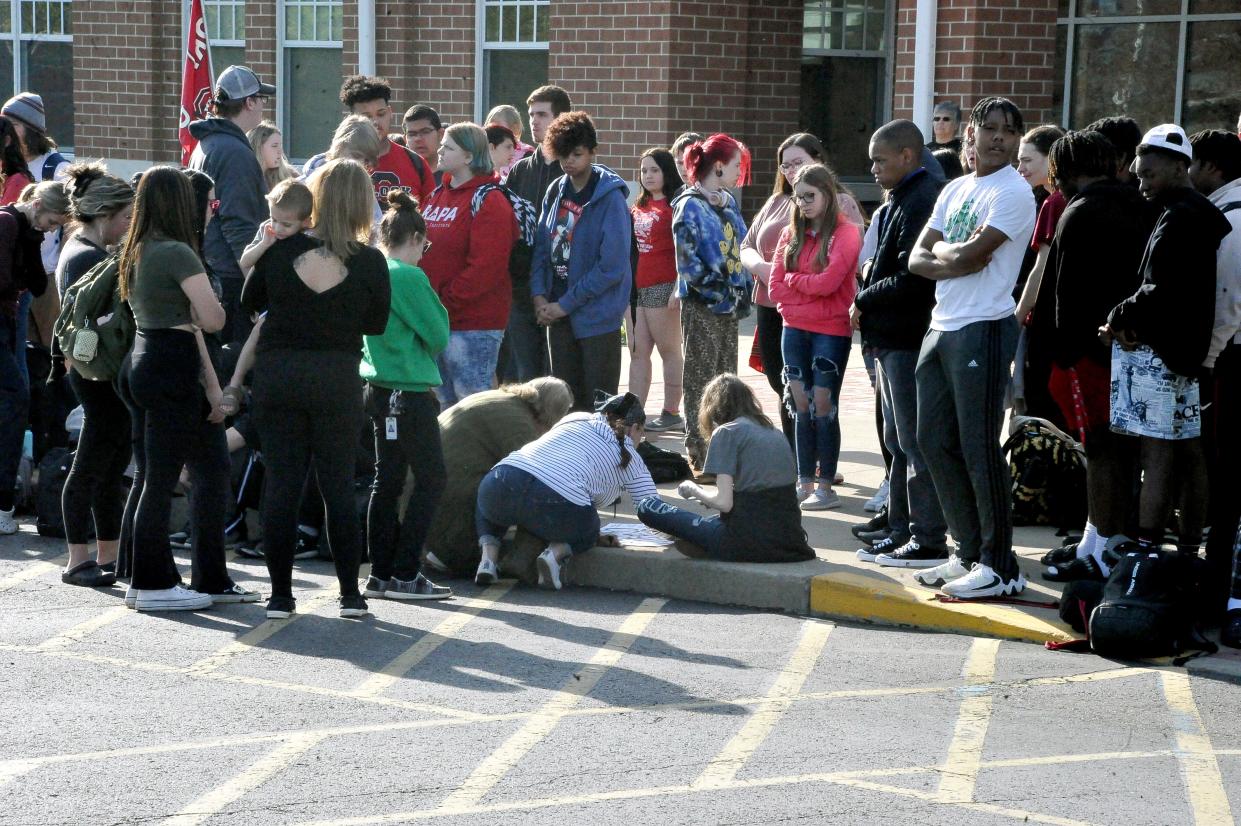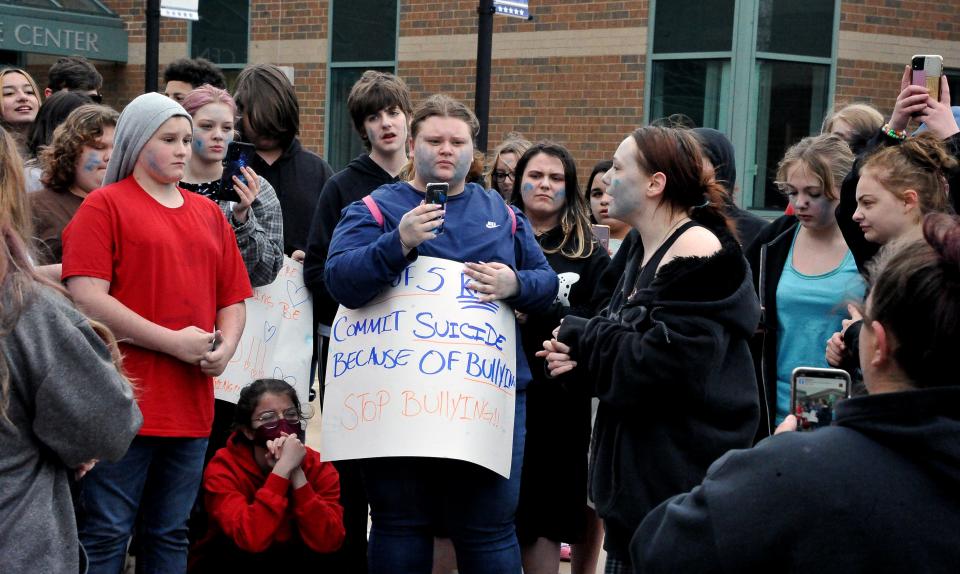School walkouts a sign of trying times. Addressing bullying in society is long overdue

Bullying is a serious problem that affects millions worldwide.
Wayne County's Orrville has been mourning the loss of 14-year-old Allicia Beam, who died by suicide. Her mother and friends believe she had been bullied. Her tragic death sparked protests among her family, friends and the school community, demanding stricter policies to combat the problem.
Days after a walkout at Orrville High, Wooster High School and Edgewood Middle School students stood in solidarity with Alicia’s family and Orrville City Schools to draw attention to bullying in schools.
A call for kindness: Orrville students walk out to protest bullying
Show of solidarity: Wooster students join Orrville in walkout against bullying
Several students spoke to The Daily Record about their experience. Some disclosed they have been called derogatory names such as “fat” and “whore,” while others said they had been heckled for the clothes they wear.
The impact of bullying on students is truly heart-wrenching. Instead of cherishing their youth and looking forward to graduation, many children are feeling afraid, ashamed and unworthy because of their peers' actions.
The latest report by the National Center for Education Statistics indicates that around 1 out of every 5 students report being bullied. Of note, that's only the percentage of students who report it. There are others who feel ashamed or don’t trust an adult to tell them about it.
Studies show that students who experience bullying or cyberbullying are nearly twice as likely to attempt suicide. Other studies in Britain have shown that half of all youth suicides are related to bullying.
Who should hold responsibility for this problem? Is it the school, parents or the students?
Children are not born bullies, they learn it from what they see and hear from adults. If we want to change children, we need to start with ourselves.
‘I was bullied for my views and for wearing a headscarf’

Bullying isn't always about high school students; it’s a serious issue for adults as well.
Whether on social media or in the workplace, school bullies can grow up to become adult bullies.
About 31% of adult Americans have been bullied for their race, color, physical appearance or disability, according to a 2017 survey reported by the American Osteopathic Association.
As a journalist and a woman from a minority group, I have experienced bullying on social media. I was bullied for my views and for wearing a headscarf, and I am sure many journalists face this on a daily basis.
Last year, I wrote an opinion column about celebrating Juneteenth and Father's Day. I knew it might spark some debate. I was taken aback, however, when I received a harsh message on Twitter from someone who called my column "trash" and "widely inaccurate.”
Initially, I doubted myself and doublechecked my sources and reviewed my research. It became apparent the person was primarily attacking my reflections on Black fathers killed by law enforcement.
We are not immune to bullying. It can cause significant negative impacts both mentally and physically, leading to depression, stress, headaches, sleep loss and mental breakdowns.

Public figures and leaders bear the responsibility of setting a positive example and denouncing bullying; nonetheless, their actions often go unchecked when they engage in such behavior themselves.
In 2015, former President Donald Trump mocked a reporter with a congenital joint condition that limits movement in his arms during his rally in South Carolina. Although many people were furious about his ridiculing actions, there were no consequences. He didn't even apologize and went on to become the president. What kind of message do we send to our children here? That it’s OK to bully others as long as we get away with it?
Before teaching children not to become bullies, adults must be held accountable.
To our children, we are sorry for failing you. We will do better, and you must know that your soul is precious.
Here are a few things you need to know:
StopBullying.gov identifies bullying as “unwanted, aggressive behavior among school-aged children that involves a real or perceived power imbalance. The behavior is repeated, or has the potential to be repeated, over time.”
Bullying can be physical, social, or verbal, and in some cases, even words can kill.
If you experience bullying, stand up for yourself and don't give up. Seek an adult's help and demand an action right away.
If you see someone being bullied, don't put your head in the sand. Report it or record it, and don't be afraid to offer your help.
Together, we can prevent bullying in all its forms.
Shams Mustafa is a freelance journalist for the Wooster Daily Record. She came to the U.S. from Egypt and lives with her husband and children in Orrville.
This article originally appeared on The Daily Record: Bullying starts with adults, time to put a stop to hurtful behavior

